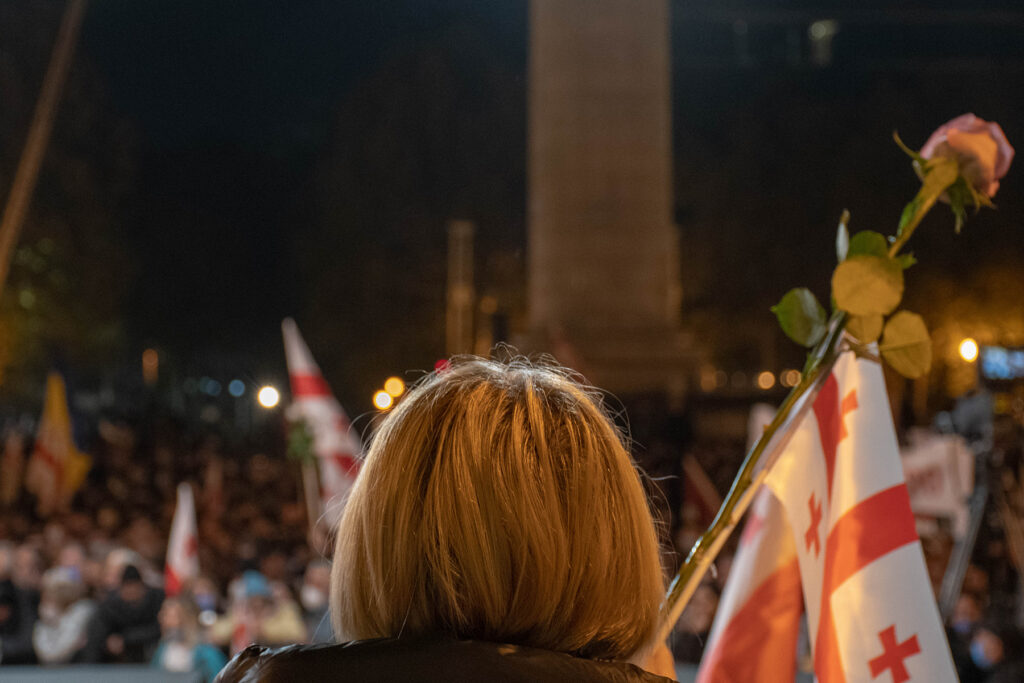Georgia’s largest opposition party, the United National Movement, has announced permanent protests in Tbilisi until former president Mikheil Saakashvili is freed and the results of October’s municipal elections overturned.
The party’s chair, Nika Melia, announced the decision at a demonstration attended by thousands of supporters on Tbilisi’s Liberty Square on Monday evening.
Addressing the crowd, Melia said that protests would be held outside the Justice Ministry and other government buildings the following morning at 10:00. He then led the crowd on a march to the nearby Government Chancellery building.
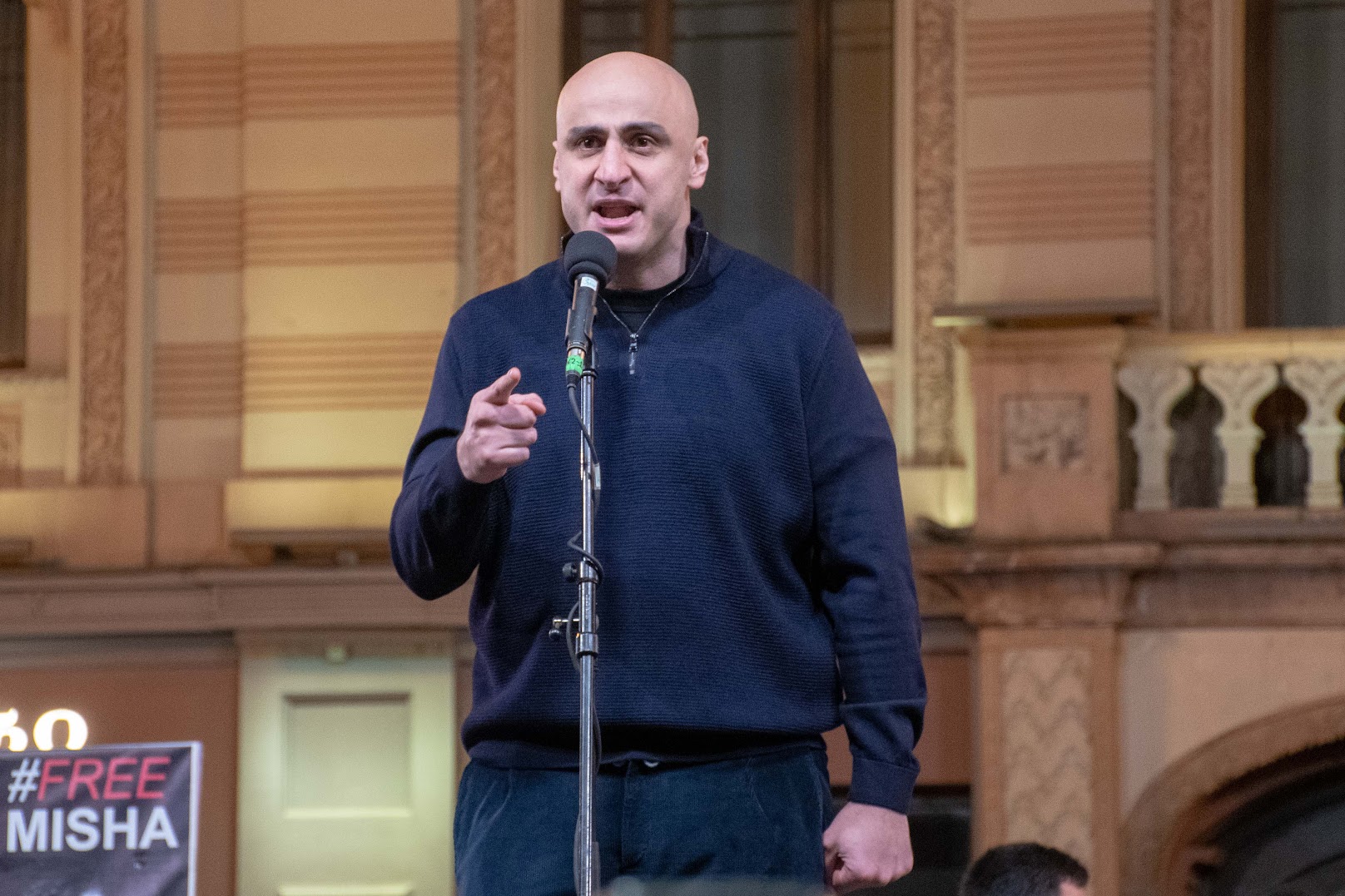
Saakashvili is serving a six-year sentence after being convicted in absentia of abuse of office. He has been on hunger strike since being arrested on 1 October after he smuggled himself into the country several days before the second round of the municipal elections.
Several opposition parties have disputed the results of the elections; international observers criticised their conduct but fell short of questioning the outcome.
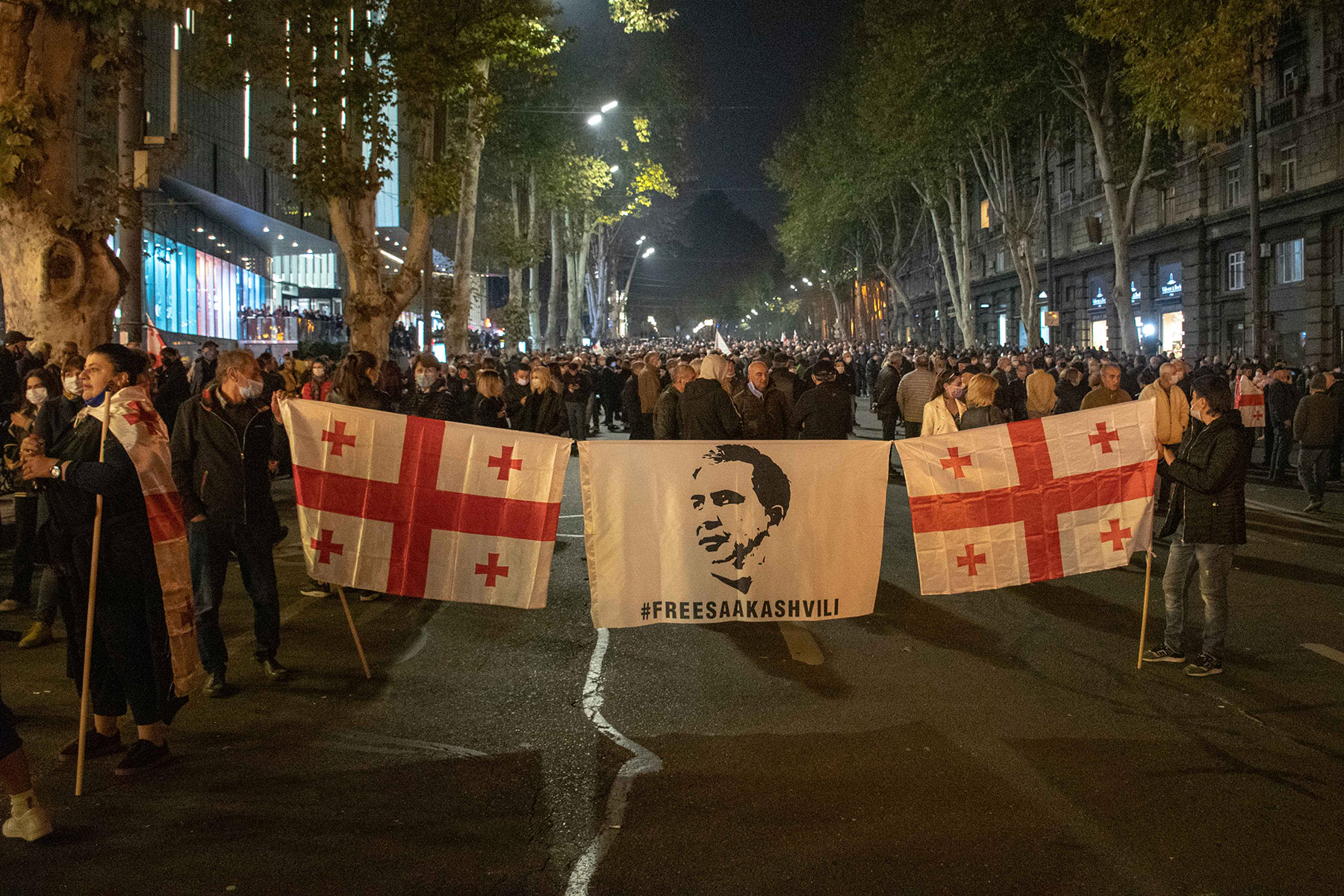
Hours before the demonstration, Saakashvili was transported to Gldani Prison in Tbilisi, which contains a more extensive hospital unit than the prison in Rustavi where he was previously being held.
The UNM have demanded that he be transferred to a civilian hospital, insisting that Gldani prison did not have the necessary medical services if his condition deteriorated.
[Read more: Saakashvili transferred to Gldani Prison]
Later in the evening, Justice Minister Rati Bregadze said that Saakashvili’s safety in Gldani Prison was being ensured, adding that he ‘verbally and physically assaulted’ prison staff and ‘damaged expensive medical equipment’.
Mikheil Ghoghadze from the Public Defender’s office said after visiting Saakashvili in Gldani Prison that the former president had told him that guards had to use physical force to take him to Gldani prison.
Following Saakashvili's transfer to Gldani prison, the Foreign Ministry of Ukraine, of which Saakashvili remains a citizen, called on the Georgian Government to ‘immediately transport’ him to a civilian medical facility.
Post-election turmoil
Georgia has been in political turmoil since municipal elections in October. The UNM and several other opposition parties have vowed to ‘defend votes’ by demanding recounts. While they pursued this tactic, the UNM made street protests their major focus in an attempt to force the authorities to transfer Mikheil Saakashvili to a civilian hospital.
While Monday’s protest was originally planned for a day earlier, the date was later changed, avoiding an anti-UNM demonstration organised by long-time Saakashvili critic Giorgi ‘Utsnobi’ Gachechiladze on Rustaveli Avenue. The gathering commemorated the violent dispersal of protests in November 2007, during Saakashvili’s rule.
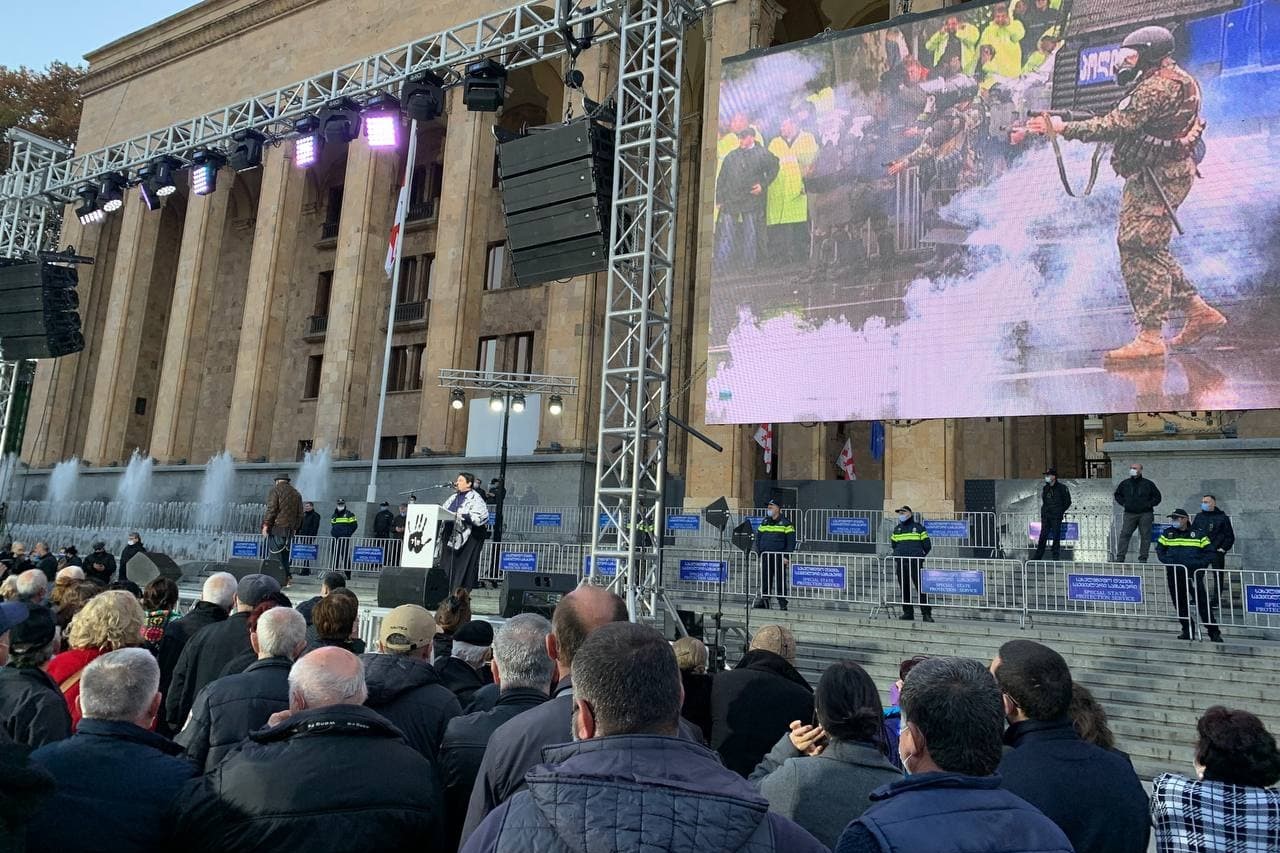
Droa and Girchi — More Freedom, currently among the closest opposition parties to the UNM, have focused on less traditional protest tactics.
On 7 November, members of Girchi — More Freedom dumped rubbish in front of the State Security Service building in Tbilisi and threw paper planes over the fence.
On the following day, Droa activists brought nutritional supplements in front of the Justice Ministry, which has questioned if Saakashvili’s hunger strike was real.
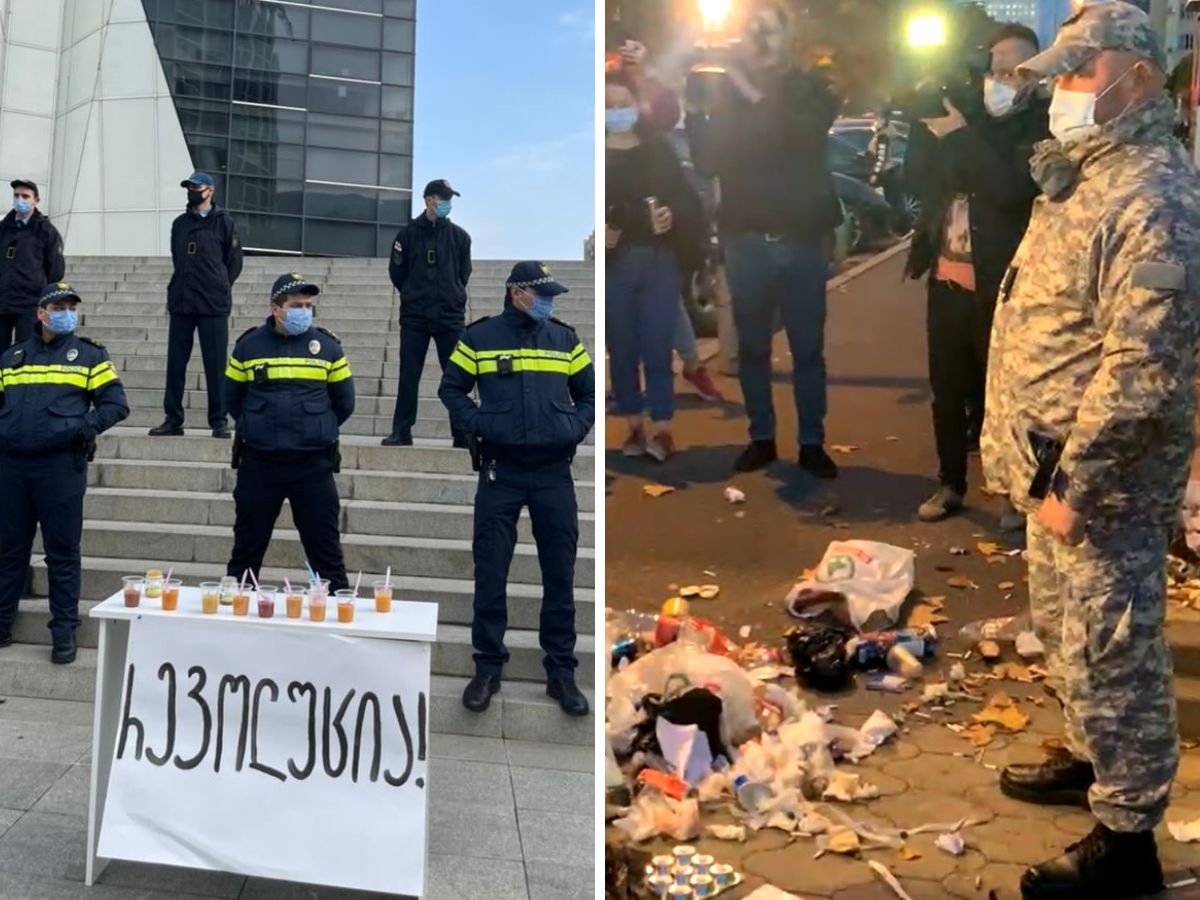
As the crowds rallied on Liberty Square on Monday, Droa’s Chair, Elene Khoshtaria, continued her hunger strike in Parliament that she started 6 days earlier. She is demanding that Saakashvili be taken to a civilian hospital.
A rapprochement from the government?
On Monday, Prime Minister Irakli Gharibashvili struck a seemingly more conciliatory tone compared to his statements during the election campaign.
He congratulated Gia Kharchilava, the only opposition mayoral candidate to win in October‘s poll who was elected to the western Georgian municipality of Tsalenjikha.
Gharibashvili said the government was open for dialogue with opposition groups provided they did so through parliamentary processes.
Members of the UNM, Girchi — More Freedom, Lelo, and Droa parties — who formed an electoral pact prior to the second round of the elections, have remained vague about whether they intended to abandon their parliamentary mandates.
Several UNM MPs as well as Lelo chair Mamuka Khazaradze have said they will renounce their seats. However, Saakashvili has called on the opposition not to do so in case they are needed to vote for early parliamentary elections or to allow MPs to visit him in prison.
As of 8 November, The Reforms Group, which includes Giorgi Vashadze, leader of Strategy Aghmashenebeli, as well as Lelo, remain in the parliament.
On Monday, both parties came forward with proposals for rapprochement that they said would deescalate the political atmosphere in the country.
‘It’s impossible that we continue to remain on the verge of serious physical confrontation every minute’, Vashadze said on Sunday presenting his 7-point proposal. They included moving Saakashvili to a civilian hospital, involving foreign judges in Saakashvili’s court cases, and pursuing reforms set out in the abandoned EU-mediated agreement signed by the parties and the government in April.
Lelo made a similar statement warning against escalation.
Giga Bokeria, the chair of another opposition party, European Georgia, did not welcome the statements by Lelo and Strategy Aghmashenebeli. He said they could be viewed by the ruling party as ‘weakness’.




 9 November 2021
9 November 2021
